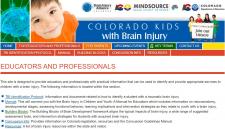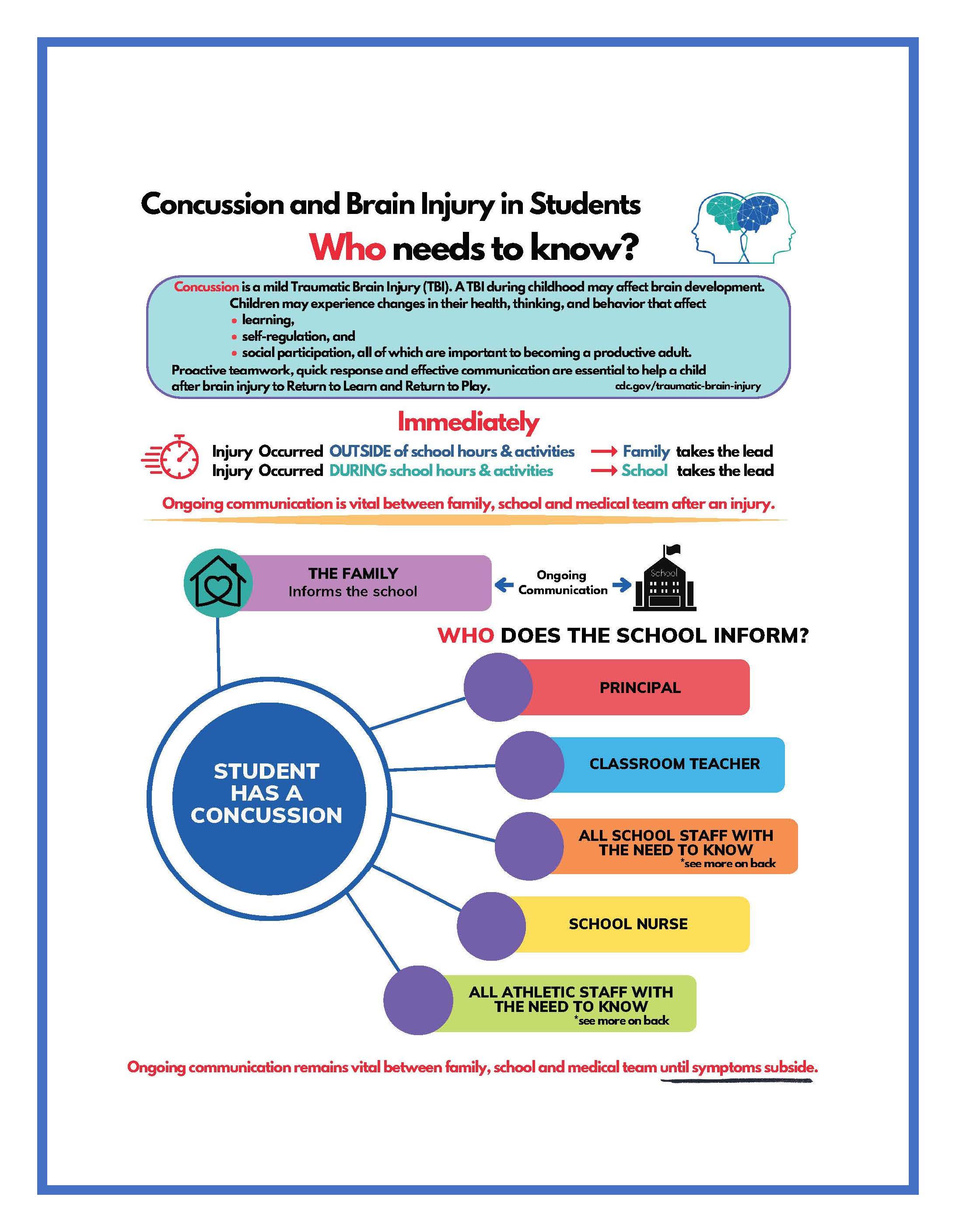
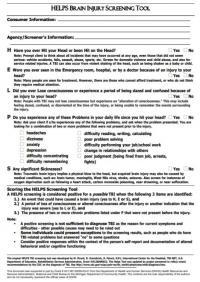
Yearly screening: Recommend using the HELPS Brain Injury Screening Tool OR add questions to the annual health history intake forms.
HELPS Brain Injury Screening Tool: The original HELPS TBI screening tool was developed by M. Picard, D. Scarisbrick, R. Paluck, 9/91, International Center for the Disabled, TBI-NET, U.S. Department of Education, Rehabilitation Services Administration, Grant #H128A00022. The Helps Tool was updated by project personnel to reflect recent recommendations by the CDC on the diagnosis of TBI.
- H - Have you ever Hit your Head or been Hit on the Head?
- E - Were you ever seen in the Emergency room, hospital, or by a doctor because of an injury to your head?
- L - Did you ever Lose consciousness or experience a period of being dazed and confused because of an injury to your head?
- P - Do you experience any of these Problems in your daily life since you hit your head?
- S - Any significant Sicknesses?
![]() Symptom Tracker: Track Symptoms, pain level changes, what provokes and what helps. Good information to take back to the healthcare provider.
Symptom Tracker: Track Symptoms, pain level changes, what provokes and what helps. Good information to take back to the healthcare provider.
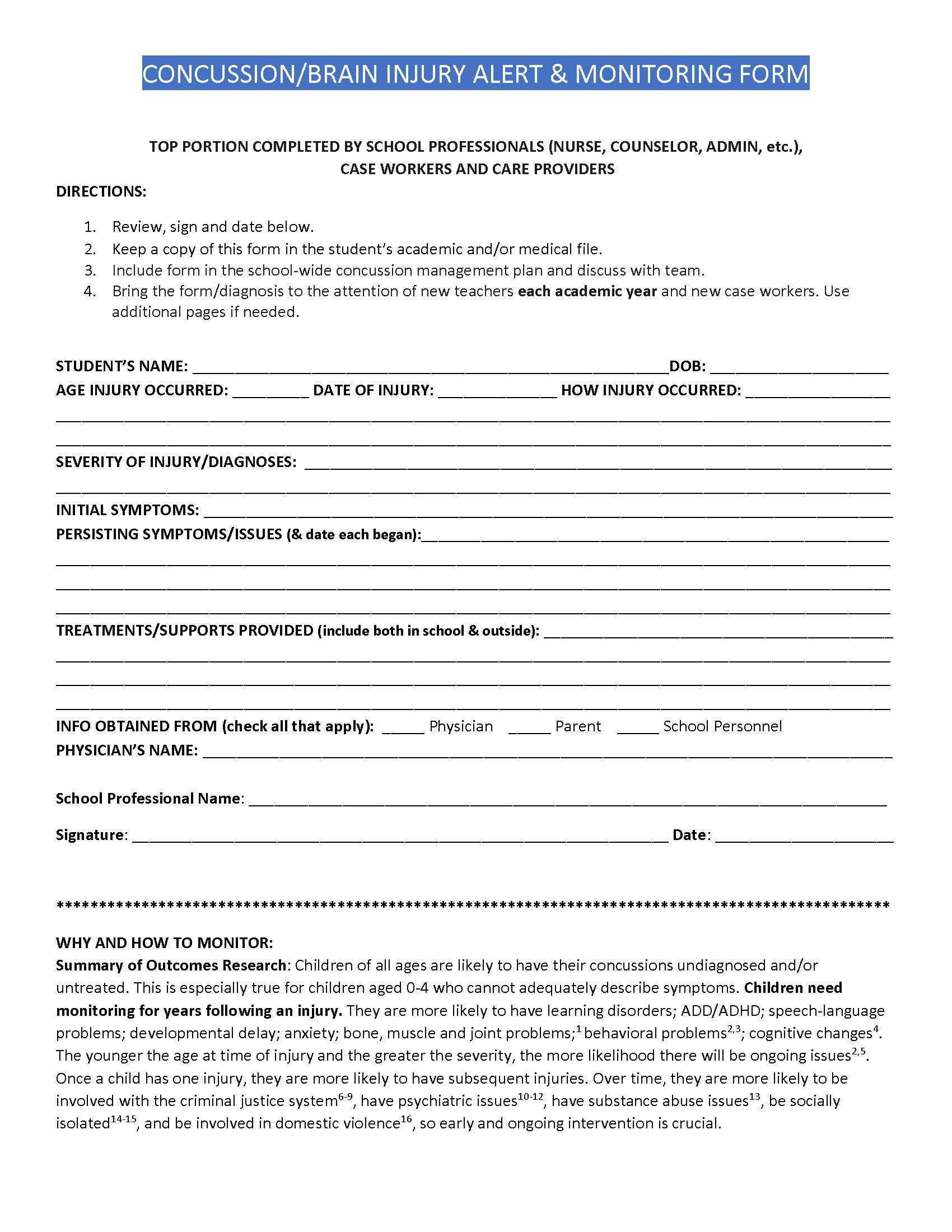 Concussion-Brain Injury Alert & Monitoring Form: For use in academic, school nurse or case manager file to serve as a reminder of the TBI. Also alerts others who may start working with the child.
Concussion-Brain Injury Alert & Monitoring Form: For use in academic, school nurse or case manager file to serve as a reminder of the TBI. Also alerts others who may start working with the child.

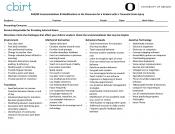 504/IEP Accommodations & Modifications in the Classroom for a Student with a TBI: Each section is broken down into helpful categories - developed by the Center on Brain Injury Research & Training (CBIRT).
504/IEP Accommodations & Modifications in the Classroom for a Student with a TBI: Each section is broken down into helpful categories - developed by the Center on Brain Injury Research & Training (CBIRT).
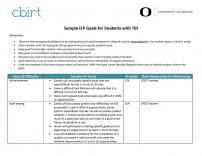 CBIRT Goals: Sample goals for students with TBI.
CBIRT Goals: Sample goals for students with TBI.
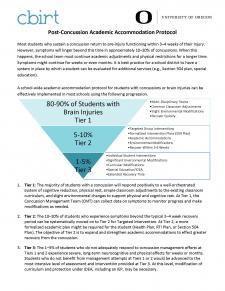 Post-Concussion Academic Accommodation Protocol: Most students who sustain a concussion return to pre-injury functioning within 3–4 weeks of their injury. However, symptoms will linger beyond this time in approximately 10–20% of concussions. When this happens, the school team must continue academic adjustments and physical restrictions for a longer time. Symptoms might continue for weeks or even months. It is best practice for a school district to have a system in place by which a student can be evaluated for additional services (e.g., Section 504 plan, special education). A school-wide academic accommodation protocol for students with concussions or brain injuries can be effectively implemented in most schools using the following progression.
Post-Concussion Academic Accommodation Protocol: Most students who sustain a concussion return to pre-injury functioning within 3–4 weeks of their injury. However, symptoms will linger beyond this time in approximately 10–20% of concussions. When this happens, the school team must continue academic adjustments and physical restrictions for a longer time. Symptoms might continue for weeks or even months. It is best practice for a school district to have a system in place by which a student can be evaluated for additional services (e.g., Section 504 plan, special education). A school-wide academic accommodation protocol for students with concussions or brain injuries can be effectively implemented in most schools using the following progression.
Special Education Network & Inclusion Association (SENIA): Traumatic Brain Injury and Learning with guests Drs. Melissa McCart and Sondra Marshall who are experts in the field of TBI, disscuss the implications of a TBI on learning. Visit CBIRT's Return to School Webinars, Tips and Tools

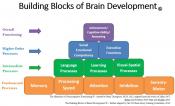 Colorado Building Blocks of Brain Development: Learn about the Colorado Building Blocks of Brain Development. The building blocks included represent typical areas of processing/learning and those that are commonly affected by brain injury. The Building Blocks of Brain Development framework is provided as a general guideline for educators and professionals. It was developed as a beginning “reference point” for professionals working with students where a brain injury is suspected or known to be present. The framework offers a wide range of suggested assessment tools and intervention strategies for students with brain injury (as well as other conditions impacting neurocognitive functioning). It is essential to use the tools appropriately and in accordance with guidelines and follow all licensing and training parameters when using this resource.
Colorado Building Blocks of Brain Development: Learn about the Colorado Building Blocks of Brain Development. The building blocks included represent typical areas of processing/learning and those that are commonly affected by brain injury. The Building Blocks of Brain Development framework is provided as a general guideline for educators and professionals. It was developed as a beginning “reference point” for professionals working with students where a brain injury is suspected or known to be present. The framework offers a wide range of suggested assessment tools and intervention strategies for students with brain injury (as well as other conditions impacting neurocognitive functioning). It is essential to use the tools appropriately and in accordance with guidelines and follow all licensing and training parameters when using this resource.
While this online framework provides the neuroeducational evaluation tools. There is also a manual, available electronically, that defines and fully illustrates each building block, called the Brain Injury in Children and Youth: A Manual for Educators.

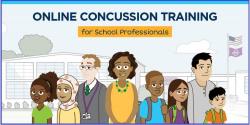 The HEADS UP to Schools: Online Concussion Training for School Professionals is designed to help classroom teachers (grades K-12), school administrators, paraprofessionals, teachers' aides, and other staff who work with students understand:
The HEADS UP to Schools: Online Concussion Training for School Professionals is designed to help classroom teachers (grades K-12), school administrators, paraprofessionals, teachers' aides, and other staff who work with students understand:
- How a concussion may affect a student’s learning, emotions, and behavior.
- How to identify and monitor signs and symptoms of concussion.
- How to help students successfully return to school and recover from a concussion.
This free training will take about 45-60 minutes to complete. It features easy-to-follow information with knowledge checks and illustrated case studies that showcase a variety of scenarios to help you apply the information presented and achieve the key learning objectives of the course.
Check out the CDC HEADS UP trainings on concussion:
- Training for coaches
- Training for healthcare providers
- Videos on concussion safety
Concussion and Brain Injury in Students, Who needs to know? Concussion is a mild Traumatic Brain Injury (TBI). A TBI during childhood may affect brain development. Children may experience changes in their health, thinking, and behavior that affect learning, self-regulation, and social participation, all of which are important to becoming a productive adult. Proactive teamwork, quick response and effective communication are essential to help a child after brain injury to Return to Learn and Return to Play. cdc.gov/traumatic-brain-injury Word Document File
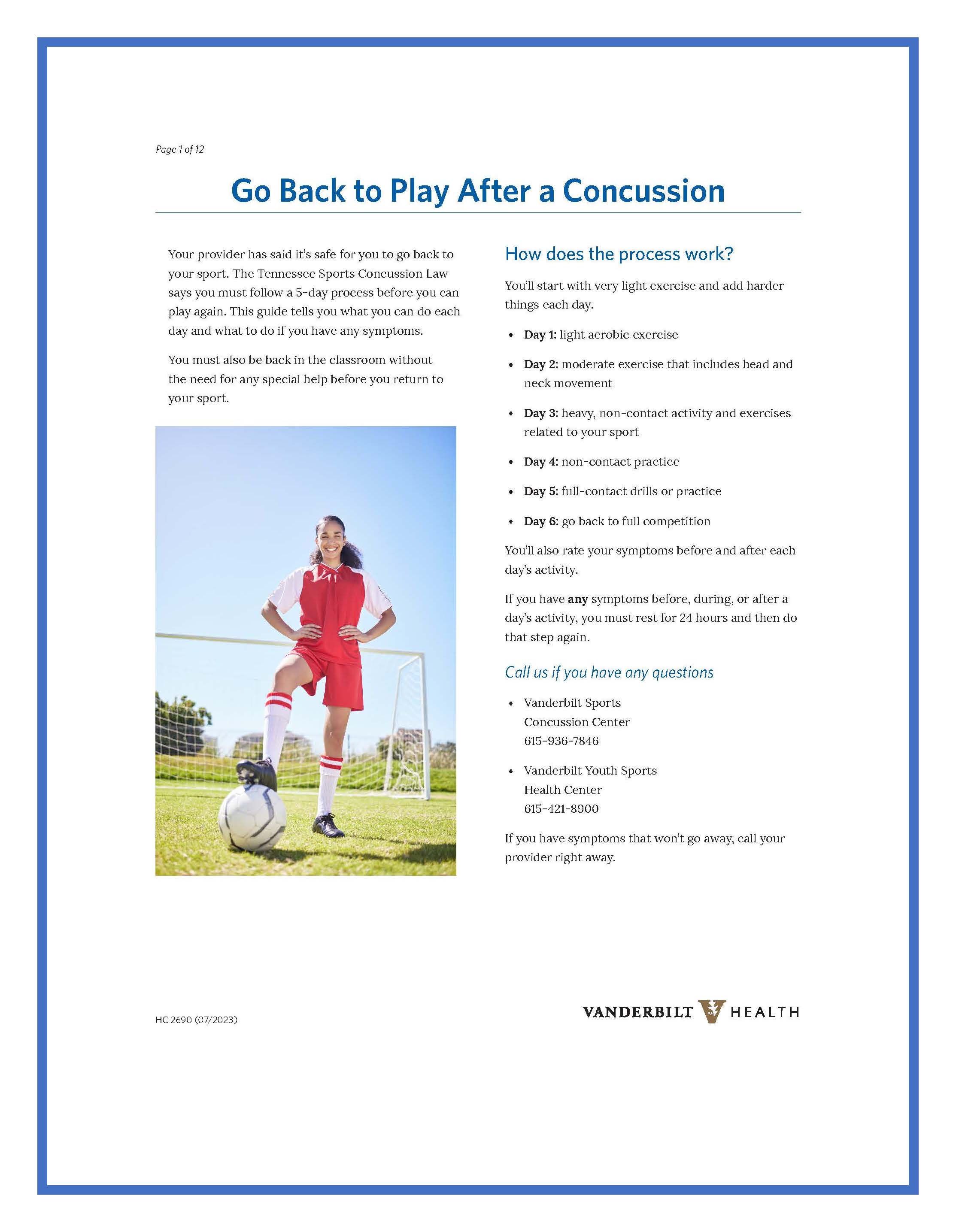 Go Back to Play After a Concussion: This is a concussion return to play manual created for student-athletes who do not have access to an athletic trainer to guide them through the Return To Learn (RTL) process. This manual follows the RTP process required by the Tennessee state concussion law. This resource is a way for parents or coaches to track and document the progress of their athletes. Vanderbilt Sports Concussion Center
Go Back to Play After a Concussion: This is a concussion return to play manual created for student-athletes who do not have access to an athletic trainer to guide them through the Return To Learn (RTL) process. This manual follows the RTP process required by the Tennessee state concussion law. This resource is a way for parents or coaches to track and document the progress of their athletes. Vanderbilt Sports Concussion Center

